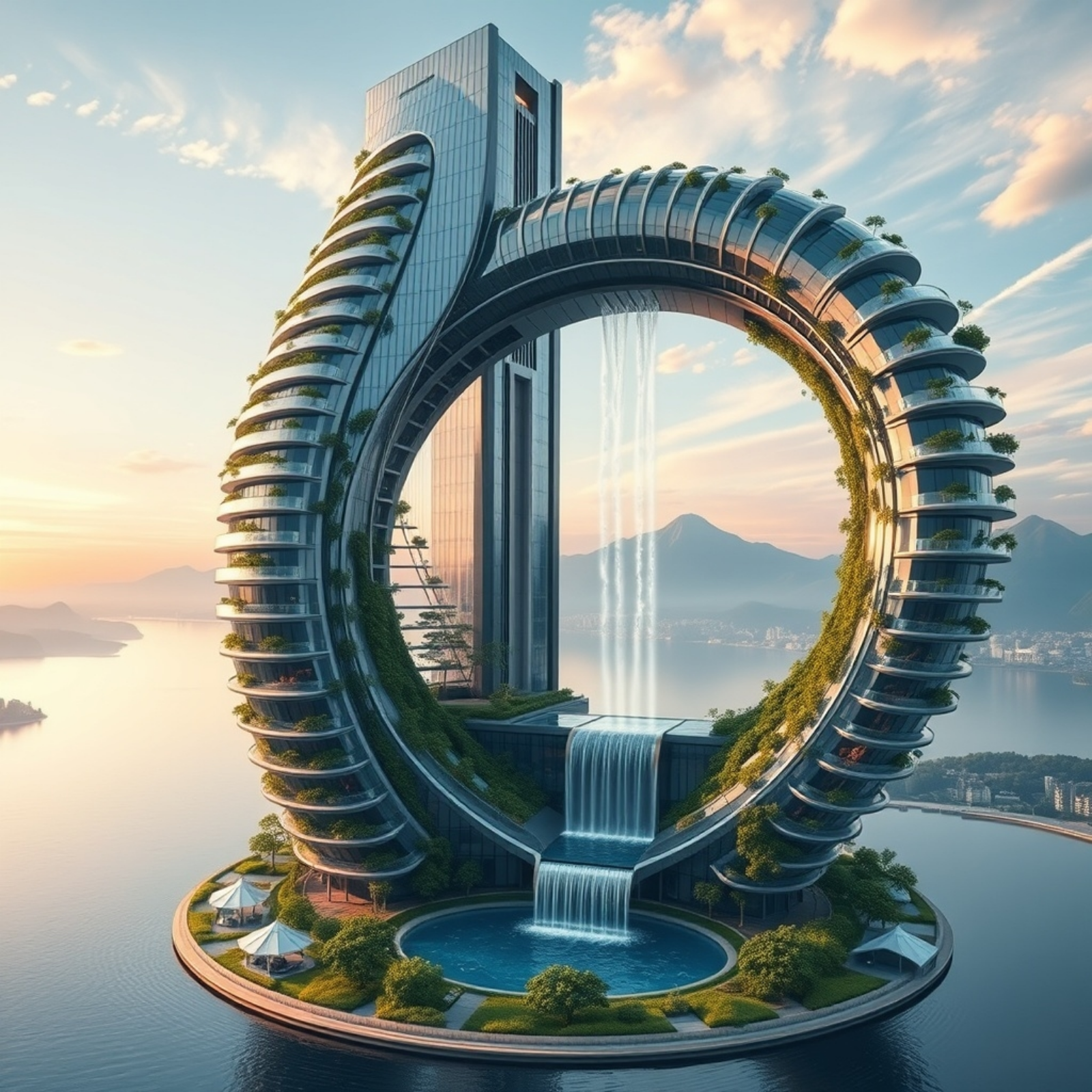

Introduction:
The future of architecture lies in its seamless integration with nature. Futuristic architecture not only focuses on aesthetic and structural innovation but also embraces sustainability. The rise of organic-inspired skyscrapers like those in the images shown epitomizes how design and nature can coexist harmoniously. These towering marvels use circular forms, cascading greenery, and water elements to represent humanity’s step into a more eco-conscious future.
1. Design Philosophy:
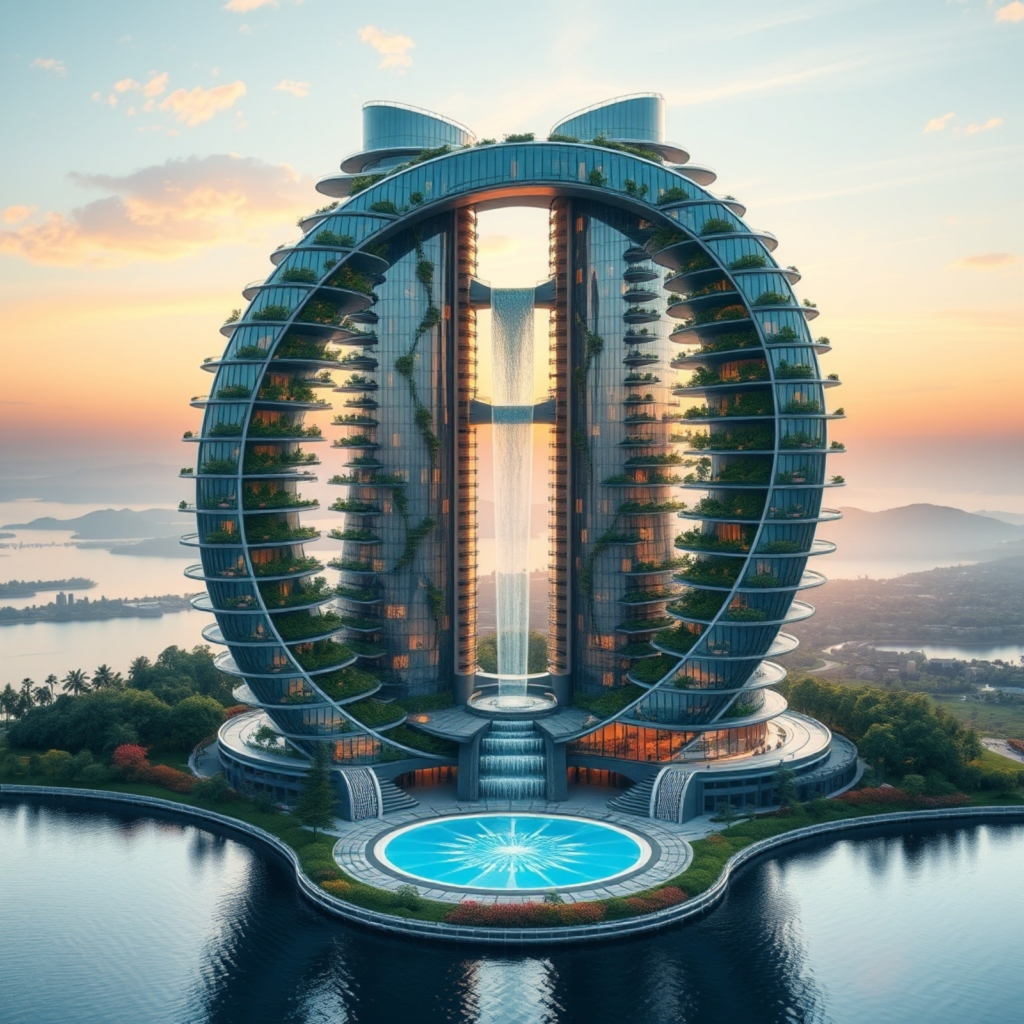
Organic Inspiration
The circular forms found in these buildings represent continuity and nature’s eternal cycle. Architects are increasingly inspired by organic shapes—fluid curves, soft angles—that mimic natural elements like waves, leaves, and shells. These structures, built with cutting-edge materials and techniques, aim to reduce the footprint on the environment while enhancing the quality of life for their inhabitants.
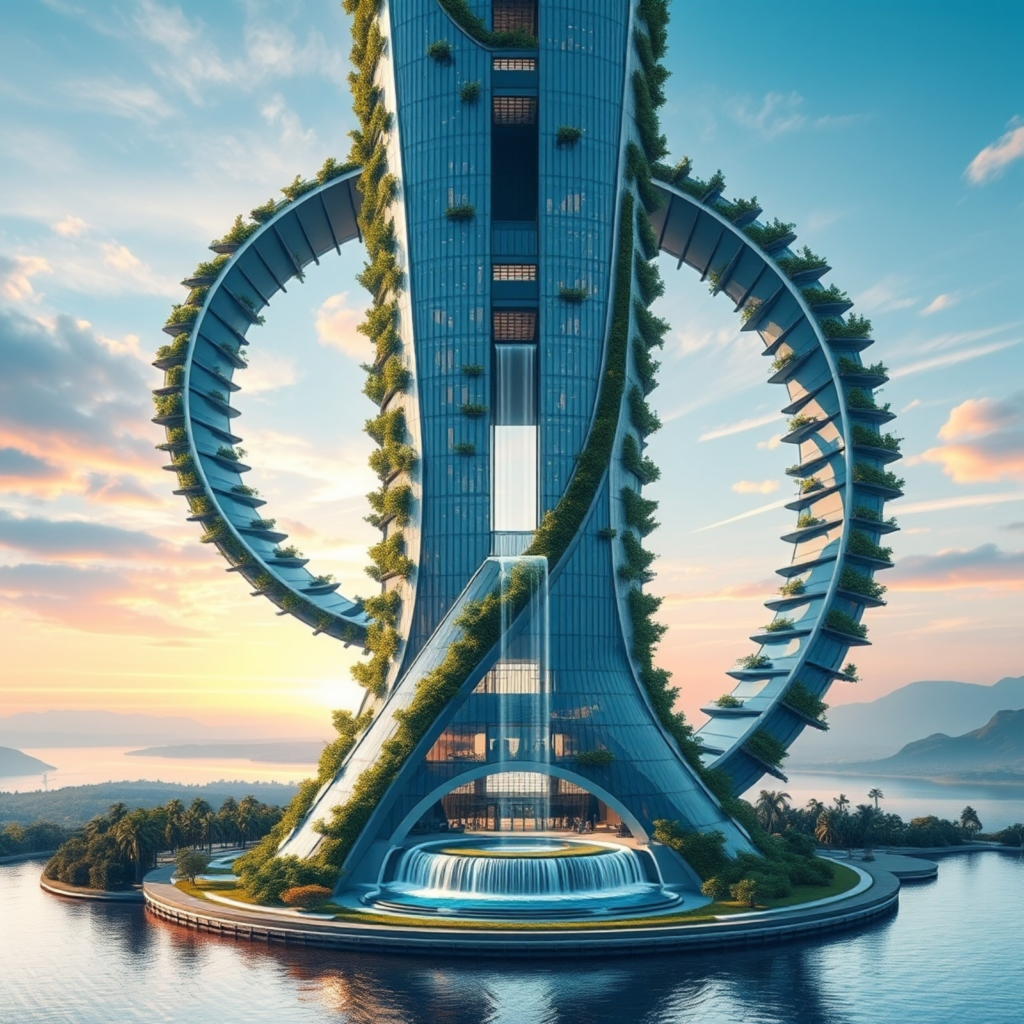
2. Sustainability in Architecture
These futuristic towers go beyond aesthetics; they incorporate green terraces, solar paneling, rainwater collection systems, and natural ventilation. Greenery flowing through each level emphasizes the design’s commitment to sustainability, reducing energy consumption, and improving air quality. This biophilic approach helps the city and the environment become more resilient against climate change.
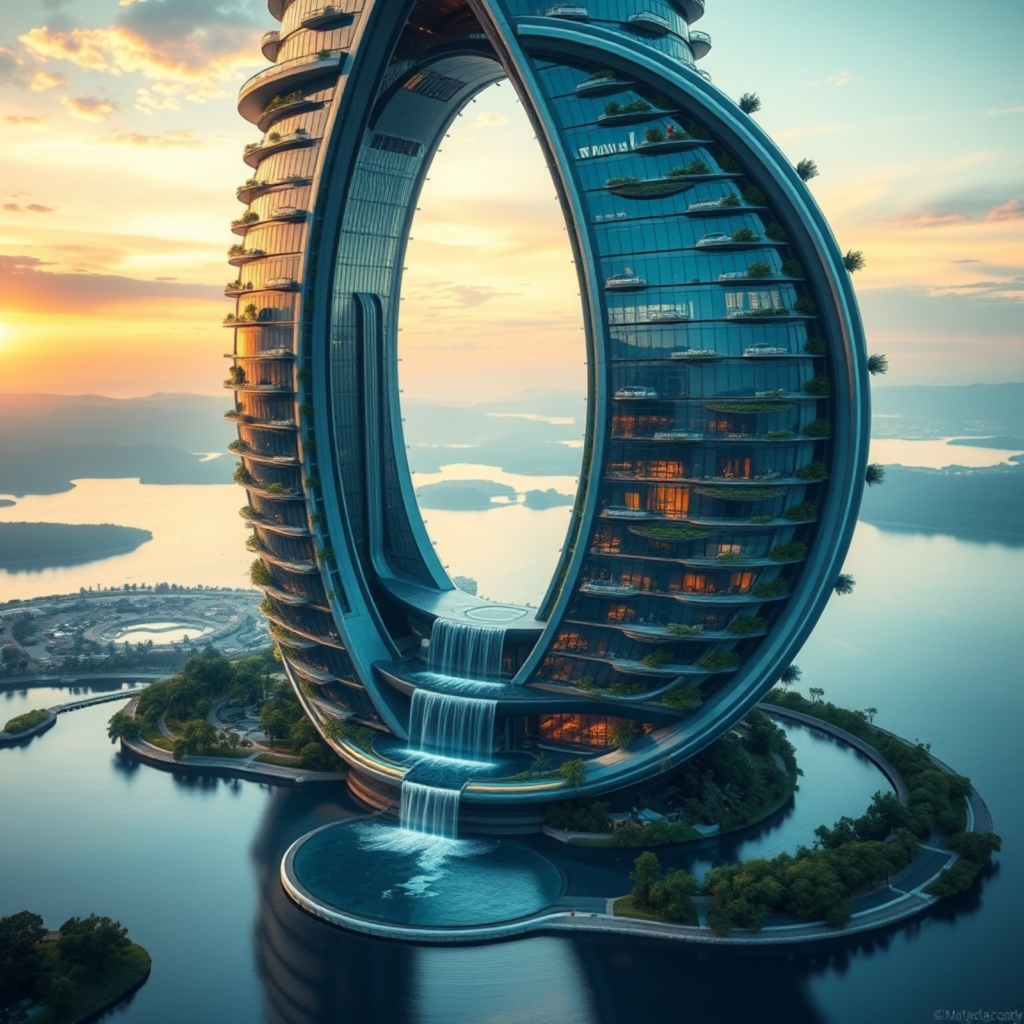
3. Architectural Highlights
Each building stands out with unique architectural elements: cascading waterfalls, elevated garden terraces, and intelligently designed interiors that maximize space and light. These structures utilize smart technology, from energy management systems to sustainable building materials that lower carbon footprints. The futuristic features offer both luxury and environmental mindfulness.
4. The Influence of Modern Technology
Advanced construction techniques using 3D modeling, prefabrication, and robotic building systems have allowed for these architectural marvels to take shape. Integrating nature’s forms with high-tech innovation is revolutionizing the way we perceive urban living spaces.
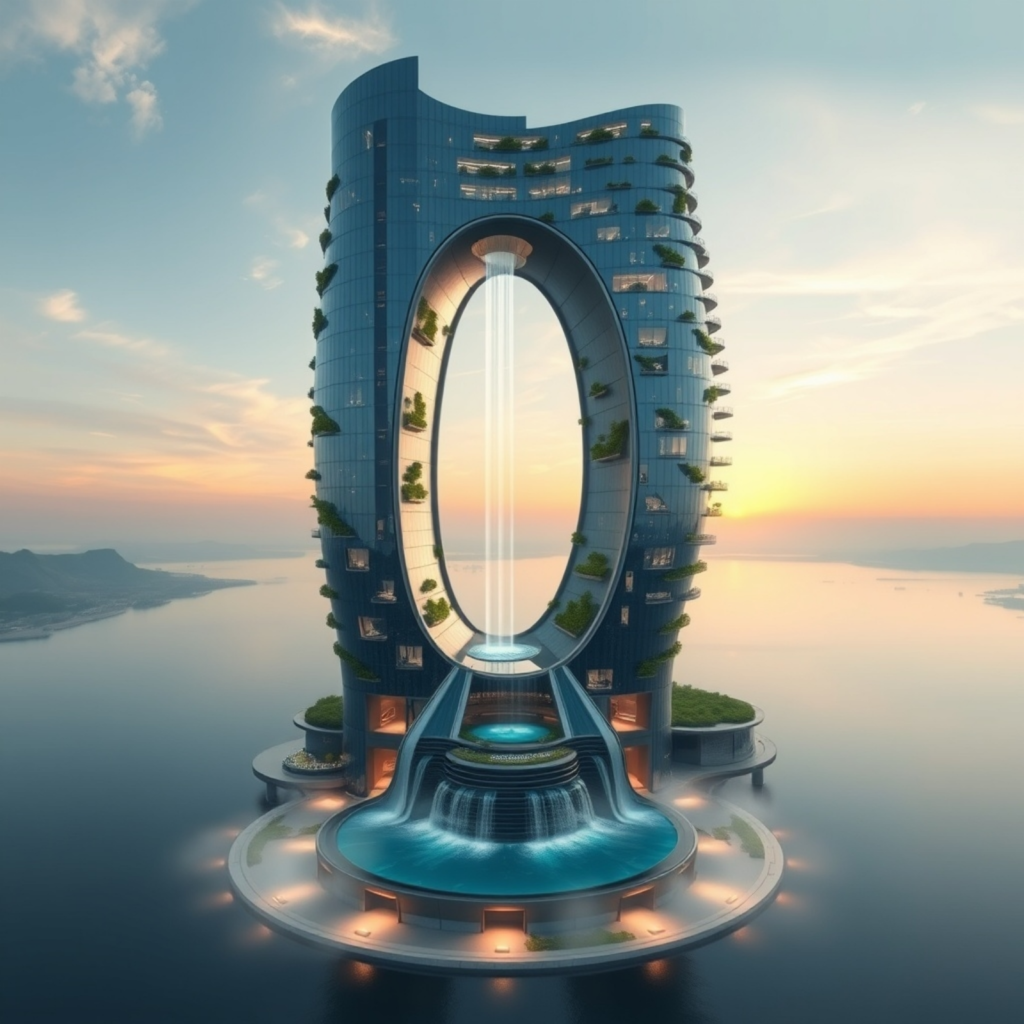
5. Impact on Future Cities
As urban populations grow, the need for innovative housing solutions that are both beautiful and sustainable becomes more pressing. These skyscrapers offer a blueprint for future city planning, where nature and technology blend seamlessly to create healthier living environments. This approach can influence other urban centers worldwide, encouraging city planners to reimagine how we design living spaces.
Conclusion
Circular, organic, and nature-driven designs are the future of architecture. The images captured in this article serve as a window into how architectural marvels will shape not only the skyline but also the way humans interact with their environment. These futuristic buildings are more than just homes; they are a vision of what sustainable urban living can be.
